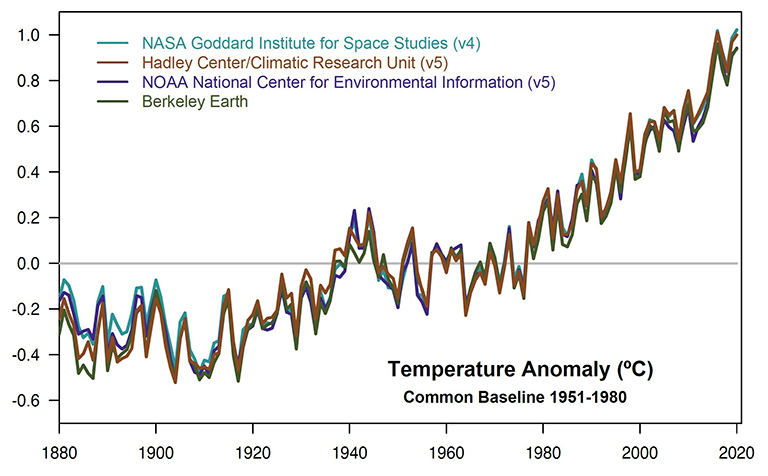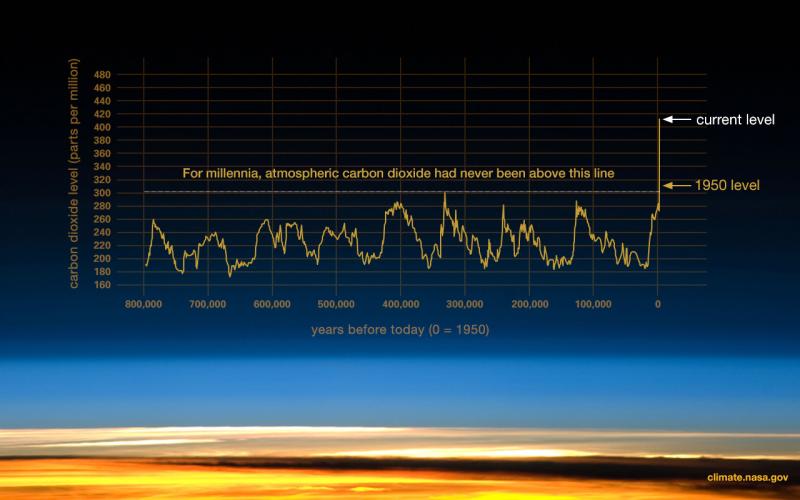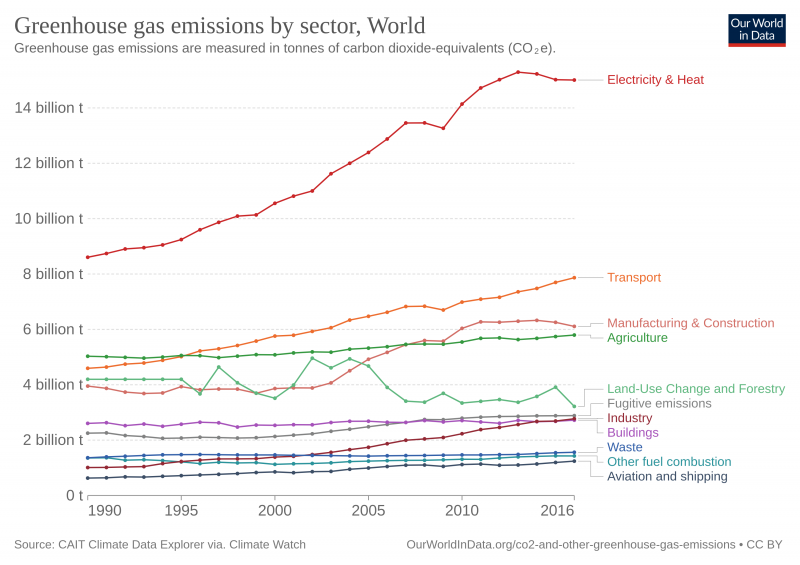Abstract
Climate change is perhaps the biggest threat humanity has ever faced. It has the potential to trigger an earth-wide mass extinction if we don’t act now. Unfortunately, public skepticism, ignorance and plain denial of the danger that climate change poses seems to have a growing tendency worldwide, despite the fact that the overwhelming majority of environmental scientists agrees on the existence and danger of human made climate change.
We as a scientific research group believe that the danger of human made climate change is real and pressing. We also believe that it is our duty to share the data that backs up our concern. The purpose of this writing is to provide graphs and sources of information that show the degradation of the natural environment of our planet caused as a byproduct of human activity.
Watch GIQ’s statement on climate change here!
Why should I care?
For Aristotle, art is an imitation of life (see Poetics, Aristotle). For as long as there has been humanity on Earth the natural environment has been a source of beauty and inspiration. Even the most frivolous of media today, like Instagram, takes deep appreciation of the natural world. Humanity has hitherto viewed the natural world as something independent from it—a seemingly infinite source of resources and sink for discarded waste.
Throughout history our civilization has successfully tamed every issue threatening its survival. We have eradicated diseases, prolonged life expectancy, and colonised even the most inhospitable habitats on Earth. For centuries it seems that our subjective lives were independent of the world around us (there were ancient societies where this was not the case, of course). We are now being confronted with the harsh truth: our subjective decisions have an impact on the very frame that has sustained us. Our life decisions are no longer independent from nature. Human civilization has grown to an extend where the notion of a world as an infinite source/sink is no longer tenable. Also the current capitalist mindset is focused in the fact that economic growth is necessary for prosperity. Alternative ways of organization must be found.
It is therefore our responsibility to take care of our world. This is a call of aegis for a planet that has given us life and beauty. Our objective is hard and ambitious: to change the mindset of a civilisation that is used to take the world for granted, to one that is aware that its actions have consequences. As scientists we believe that this change in society must be sought.
Why we post this statement?
Climate change is one of the most serious threats to our planet and its biodiversity. Consensus among the scientific community as to the imminent threat posed by climate change is overwhelming. And yet the trend among the general public seems to veer in the opposite direction. In recent years there is noticeable skepticism about climate change, accompanied by misinformation, ignorance, or even complete denial of the facts.
We as scientists, primarily funded by taxpayers money, have a duty to inform the public about the facts, as well as the consequences, that climate change will bring about. With over a century’s worth of collected data, and models of ever increasing complexity, it can be overwhelming for anyone to sieve through it all and develop an informed opinion. Our aim here is to convince you that climate change is very much a real and pressing concern, to present you with several sources that provide the very same data used to shape climate policy in a user-friendly, easy-to-visualise way, and to inform you> of several world-wide initiatives dedicated to addressing climate change.
Evidence of Climate Change
Before doing so it is worthwhile clarifying what we mean by climate change. To a scientist climate refers to the long-term regional or global average of temperature, humidity, and rainfall patterns over seasons, years or decades. Climate change is a long-term change in the average weather patterns that have come to define Earth’s local, regional and global climates. These definitions are taken from NASA’s climate change potal. Climate change can be due to natural causes or due to human activity. Natural climate change comes about from a wide range of factors, such as the Sun’s luminosity, the ocean’s warming and cooling cycles, as well as volcanic and glacial activity (for a more thorough review we highly recommend the University of Calgary‘s energy education portal). Anthropogenic climate change is due to a singular factor—mankind. To the best of our knowledge there exists no scientific debate regarding climate change. With over a century’s worth of data gathered worldwide the scientific community has reached consensus; our planets climate is most definitely changing. Average temperatures have been showing a steady increase over the last century and if current indications are any guide, global average temperature is projected to reach 2º C over those between 1951-1980 in the next five decades (see next Figure).

By far the largest contributing factor to raising temperatures are green house gases, chief among which is CO2. Here too the data make for grim reading. For tens of thousands of years CO2 levels in our planets atmosphere remained below 300 parts per million. That threshold was crossed in 1950 and CO2 emissions have been growing at an alarming rate ever since (see next figure). Both these effects are now attributed as anthropogenic. Indeed, statistical analysis conducted by the Intergovernmental Panel on Climate Change on data collected over the past century correlate to a high degree of confidence (over 95%) with increased human activity—mainly the use of fossil fuels.

These, and many more, facts are what the scientific community bases its opinion on. The verdict is unequivocal; climate change is here, it is ongoing, and it is with statistical certainty due to human activity.
Where can I find the data?
There are a myriad of public and private initiatives on climate change, so many in fact that we cannot possibly list them all. The following three sources contain a wealth of information on climate change research, including technical and scientific reports as well as an extensive bibliography to open access articles on climate change research:
The IPCC is a United Nations body tasked with assessing the science on climate change. Since its inception in 1988 the IPCC has produced five assessment reports on climate change, with a sixth report expected in 2022. It is on the basis of these reports that agreements such as Kyoto and Paris are based on. Copernicus is the EU’s Earth observation program whose aim is to collect data on the Earth’s environment. It provides a wealth of information on the past, present, and future of climate change in terms of scientific data and tools. NASA’s climate portal, like Copernicus, also maintains an up to date data library as well as a wealth of information on climate change in terms of articles, blogs, tutorials and multimedia resources.
If the above sources seem too overwhelming, fear not. The following websites provide, in our view, the same climate change information in a more user-friendly way:
WRI works with both governmental and private institutions to develop practical solutions to improve people’s lives and protect our nature. It operates a variety of initiatives, ranging from food and land use to mobility, all around the world. They also provide a wealth of data on topics that are directly or indirectly linked to climate change, such as deforestation, biodiversity, and many others, some in near real time. OWD is an aggregate cite gathering research data from public and private institutions around the world, as well as from major publishing houses. It hosts over 3000 charts on nearly 300 topics—from climate change and energy consumption through to smoking and child mortality rates. In many cases one can find data specific to ones country. Of note is the greenhouse emission by economic sector shown in next figure.

What can we do to help?
We here at GIQ support global initiatives such as Scientists for Extinction Rebellion as well as our colleagues at ICTA. To that end, and based on the data in Fig.~\ref{fig:ghg_sector}, concrete actions that are being taken by the group currently are:
- Push for more efficient lighting in the group’s office.
- Ask our university to re-imburse our carbon tax from our business trips.
- Group wide average carbon Credit for travel.
- Preference of Train over plane for conferences within a reasonable distance/time.
- New approach to group seminars with both presential and virtual seminars. Speakers giving seminars presentially are invited for a a certain period of time (week).
- Avoid lightning seminars from visitors, have them virtual.
No single action is enough to stop the degradation of the environment, as we mention above, a change of attitude in the society is necessary. By far the most important thing we can all do is to stay informed. Climate policy should be discussed openly and transparently, and our course of action should be based on facts and solid science. Our species (and all others of course) survival is far too important to be left to a handful of politicians.